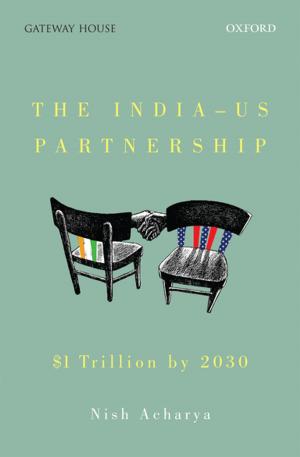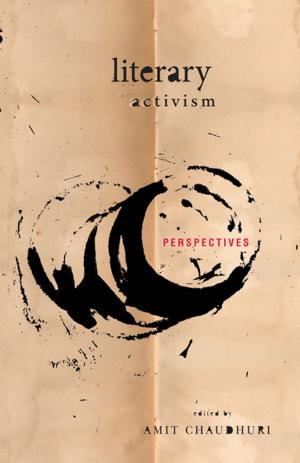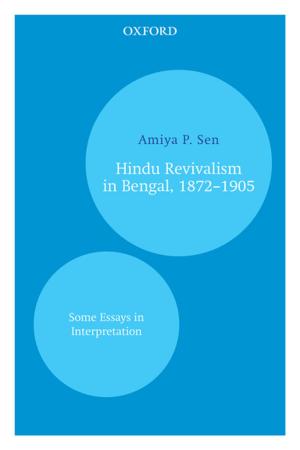The Feringhees
Sir Robert and Sir William—Two Europeans in India Volume 1: The Proud Empire; Volume 2: The Straight Race
Nonfiction, Social & Cultural Studies, Political Science, History| Author: | Elizabeth Hamilton | ISBN: | 9780199093618 |
| Publisher: | OUP India | Publication: | January 21, 2016 |
| Imprint: | OUP India | Language: | English |
| Author: | Elizabeth Hamilton |
| ISBN: | 9780199093618 |
| Publisher: | OUP India |
| Publication: | January 21, 2016 |
| Imprint: | OUP India |
| Language: | English |
A stiff upper lip, steely eyes and a cold heart is often how the English imperialist is pictured in popular imagination. Drawing from memoirs, commentaries and family letters, Elizabeth Hamilton brings forth an alternative portrayal of her ancestors, Sir Robert Hamilton and Sir William Barton. Their careers in India are set against the momentous events of their times to present a different side of the colonialists of a quiet people, dedicated to the tradition of upholding the law and avoiding conflict. Volume I, The Proud Empire, traces the life of Sir Robert Hamilton, from the beginning of his career under the watchful eye of his father, up until his retirement. Occupying multiple roles such as the Resident of Indore and Agent to the Governor General in the Central Provinces, he is seen interacting with various prominent Indian figures such as the Rani of Jhansi, Tantya Tope and Nana Sahib. The picture of the arrogant imperialist fades away to be replaced by that of someone keen to make a difference to the society he was working in, who encourages good governance, mends ties in the midst of escalating tensions and must recover cities occupied by insurgents, all the while shadowed by the burden of great personal losses. Volume II, The Straight Race, tracks Sir William Barton’s career in the early twentieth century. Starting in the Punjab and the North-West Frontier, he later served as Resident in the well-administered states of Mysore and Hyderabad, where he stood up to the Nizam, doing his best to set the administration on a less corrupt footing. Retirement did not deter Sir William’s close interest in Indian affairs; he returned twice on tour as an advisor to electrical companies and travelled with a Ministry of Supply mission during the Second World War. With three books and many articles for newspapers and journals on the subject, India remained an integral part of his life.
A stiff upper lip, steely eyes and a cold heart is often how the English imperialist is pictured in popular imagination. Drawing from memoirs, commentaries and family letters, Elizabeth Hamilton brings forth an alternative portrayal of her ancestors, Sir Robert Hamilton and Sir William Barton. Their careers in India are set against the momentous events of their times to present a different side of the colonialists of a quiet people, dedicated to the tradition of upholding the law and avoiding conflict. Volume I, The Proud Empire, traces the life of Sir Robert Hamilton, from the beginning of his career under the watchful eye of his father, up until his retirement. Occupying multiple roles such as the Resident of Indore and Agent to the Governor General in the Central Provinces, he is seen interacting with various prominent Indian figures such as the Rani of Jhansi, Tantya Tope and Nana Sahib. The picture of the arrogant imperialist fades away to be replaced by that of someone keen to make a difference to the society he was working in, who encourages good governance, mends ties in the midst of escalating tensions and must recover cities occupied by insurgents, all the while shadowed by the burden of great personal losses. Volume II, The Straight Race, tracks Sir William Barton’s career in the early twentieth century. Starting in the Punjab and the North-West Frontier, he later served as Resident in the well-administered states of Mysore and Hyderabad, where he stood up to the Nizam, doing his best to set the administration on a less corrupt footing. Retirement did not deter Sir William’s close interest in Indian affairs; he returned twice on tour as an advisor to electrical companies and travelled with a Ministry of Supply mission during the Second World War. With three books and many articles for newspapers and journals on the subject, India remained an integral part of his life.















